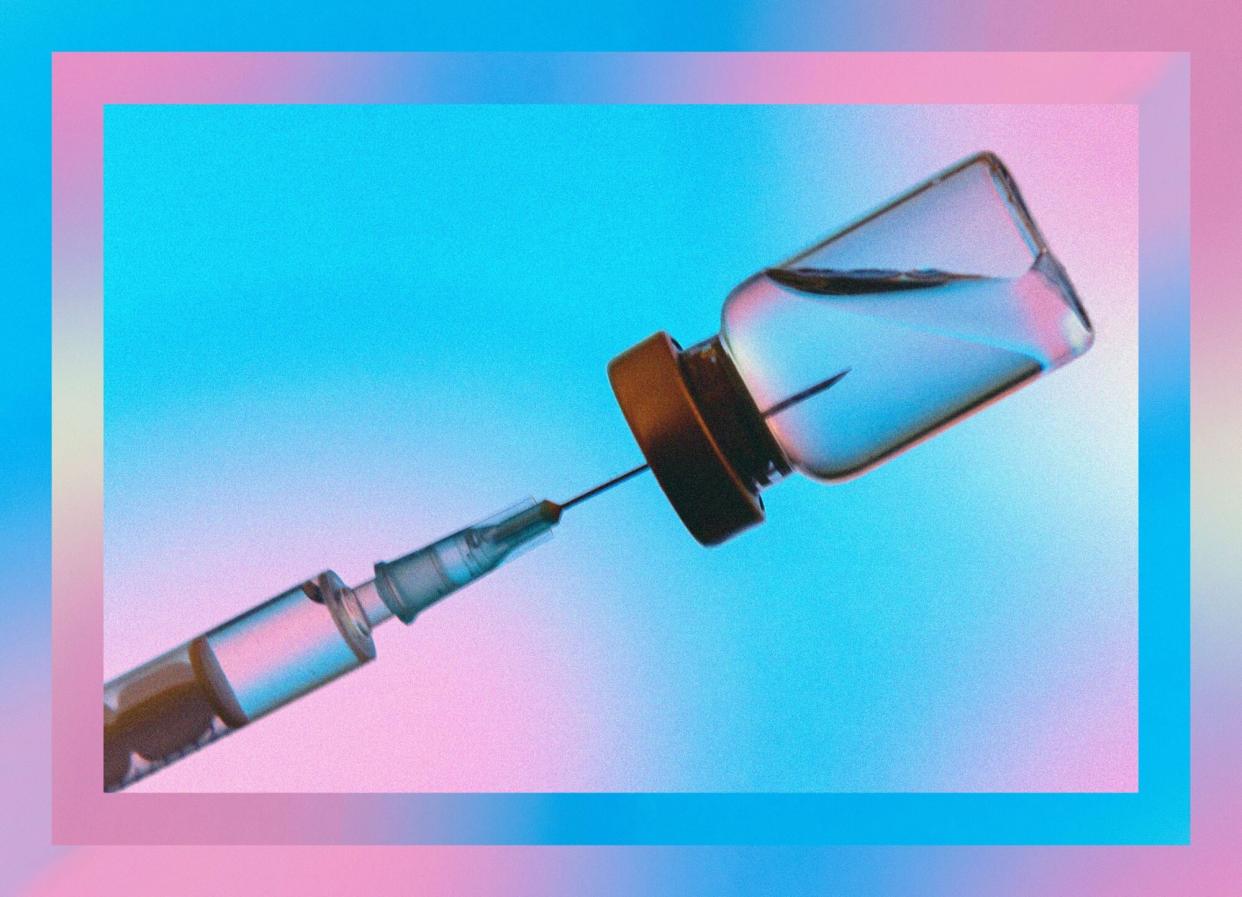Reminder: It's None of Your Business Why Someone Got Vaccinated Before You

Getty Images
With the United States now averaging 2 million vaccine doses administered per day, we've entered the phase of the vaccine rollout where your social feed has likely started to fill up with young and seemingly healthy friends and acquaintances with WFH jobs announcing they've received their first dose.
And in the past few weeks, I've observed one overwhelming response to learning someone has been vaccinated: "You're so lucky!" quickly followed by, "So, how did you qualify?"
RELATED: Let's Put an End to These Dangerous Vaccine Myths, OK?
Sure, it's natural to feel curiosity, and even maybe some envy, as you patiently wait for your ticket to complete freedom (well, almost complete freedom), but it's worth emphasizing: there are myriad 'unlucky' reasons why someone might qualify for earlier vaccine access in the first place, whether it's cancer or a chronic health condition. And knowing the specifics simply isn't any of your business.
As more vaccines are rolled out I just want to remind everyone that questioning someone on why they were a candidate or received a vaccine is not appropriate, unless you are directly involved in that person’s medical care.
— Dr. Darien Sutton (@DoctorDarienMD) March 2, 2021
"As more vaccines are rolled out I just want to remind everyone that questioning someone on why they were a candidate or received a vaccine is not appropriate, unless you are directly involved in that person's medical care," Darien Sutton, M.D., an emergency medicine physician, tweeted. "Yes, we need to continue to advocate for overall transparency on vaccine distribution data but an individual does not owe you an explanation of their entire medical history," he added.
RELATED: Here's How it Feels to Be 'Fat Enough' to Get the COVID Vaccine
Whether they qualify due to their BMI or another underlying health condition, "probing into someone else's health history can make them feel uncomfortable and reveal information under pressure that they otherwise would not reveal," Alexa Mieses Malchuk, M.D., MPH, a family physician in Durham, N.C. tells InStyle. So, if your coworker isn't voluntarily offering up this information during your weekly Zoom, maybe don't ask 'why'.
As someone w chronic disease who works w high need communities nationwide, is politically connected & still can't figure out who gets a vaccine when (it's never me!) if you want one and have the chance Get It. No guilt, no excuses. Congrats to EVERYONE who has been vaccinated.
— Samantha Corbin (@SamanthaCorbin) March 9, 2021
And the thing is, we're only going to see more young people being vaccinated in the weeks to come without a valid 'reason', thanks to crowdsourced "vaccine hunter" websites that compile social media pages and online forums sharing how and where people can get the vaccine. The idea is to connect distribution sites that have expiring doses with motivated people — many young and healthy who aren't technically eligible in their state. And as frustrating as it may be to see someone receive a vaccine "out of turn" while an eligible loved one still waits for an appointment, vaccine shaming isn't the answer here.
"Vaccine rollout is not perfect," says Dr. Malchuk. "Under ideal circumstances, all vaccine doses would be used on the appropriate person based on rollout phase, however, systems don't always operate efficiently or perfectly." Some unfairness at the margins of the vaccine distribution system is still better than the alternative when you consider our collective end goal, she says. "It would also be unethical to waste vaccine doses. Focusing on the big picture highlights that the more we can vaccinate the better."
Rather than judging anyone for 'cutting the line', we should instead turn our focus to making sure everyone we know is planning to get vaccinated. (Nationwide, nearly half of Americans would refuse a shot if offered, polls suggest.) As Dr. Anthony Fauci, the nation's top infectious disease expert, said in a press briefing earlier this month: "You need to get vaccinated when it becomes available as quickly and as expeditiously as possible throughout the country."
So, when you hear someone you know got the vaccine? Just congratulate them. As the saying goes, the more the merrier.

